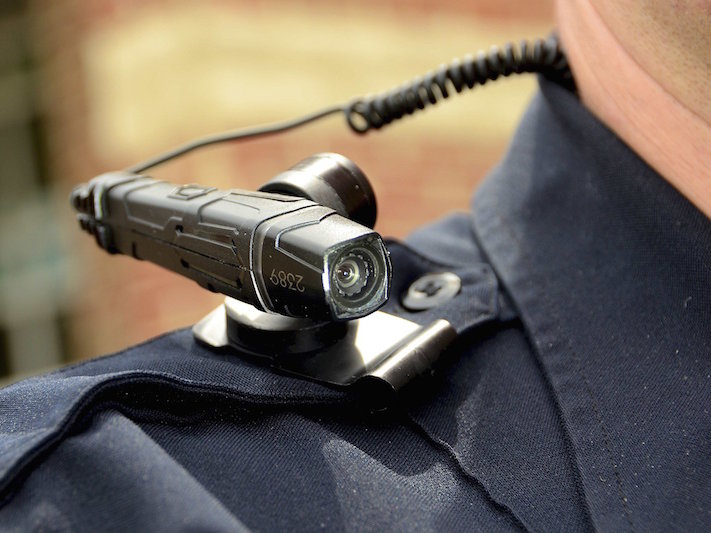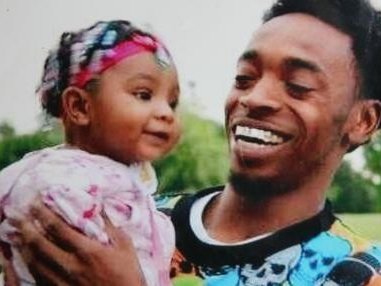The opinions expressed in this piece do not necessarily reflect the opinions of OnMilwaukee.com, its advertisers or editorial staff.
It’s fairly easy to understand why there is this mad rush to put body cameras on every police officer who hits the streets in any city, including Milwaukee.
There have been several incidents around the country, primarily black victims and white cops, that have in large part been responsible for increased cries for police oversight.
Mayor Tom Barrett has announced a plan to have every cop wearing body cameras by the end of 2016, a timetable that is more aggressive than almost any other city.
The plan has broad support, from both the police chief Edward Flynn and police union president Mike Crivello. Members of the community have also praised the plan.
I have a suspicion that those who have shouted the loudest for body cams think that they are going to see countless examples of police using excessive force and brutality time after time after time.
But, after having lived here all my life and knowing dozens of cops, I think what people are going to see is that almost every time the officers are going to act like professionals and surprise people with how much crap cops face every time they hit the streets.
The Milwaukee Police Department has occasionally had a bad apple, nobody is perfect, but the idea of this being a cowboy department is way out of bounds. Almost every cop I know has tried to be a professional who takes his or her responsibility seriously.
Crivello, obviously, supports any and all efforts to make policing both more effective and safer for everyone.
"Body camera funding, while in part is a political decision of the city, is welcomed by the association," he said. "There is no doubt that these cameras will absolutely depict the professionalism that our officers display on a daily basis."
The most interesting thing about body cameras is that they not only help protect the public from excessive force, but they can also help protect the police from bogus claims of police brutality.
Chuck Wexler, executive director of the Police Executive Research Forum, in a statement, called the use of body cameras, "a sad commentary on the state of police-community relationships."
His group has conducted studies that show body cams have had an impact on reducing the number of claims filed alleging excessive use of force.
The cost of the Milwaukee program is estimated to be $880,000 in 2016 and about $1 million a year beginning in 2017. Those figures include video storage. Guidelines are going to have to be developed in order to assure proper and effective use of the cameras. There are privacy concerns that need to be addressed.
But more important than body cameras, I think, is the idea of finding money to return to full staffing of the police department.
Just take a look around and see how many squad cars you see with just one officer inside. I can’t come close to comprehending the feelings generated when an officer heads out all alone in a cop car. What in the world can his family think when saying good night?
Crivello talks about attending a recent roll call and asking how many officers were going out in single cars that shift.
"One copper said it would be easier to answer how many of them were going out in two-man squads," he said.
The problem with single squads is obvious. Alone, an officer faces an uncertain situation in which he or she may well call for backup before taking any actions. That delay can create a time frame when a minor dispute escalates into a serious and dangerous problem.
As the level of violence in Milwaukee seems to continue escalating, finding ways to make police safer and more effective, with two officers in every squad, is at least as important as making them accountable for their actions.
With a history in Milwaukee stretching back decades, Dave tries to bring a unique perspective to his writing, whether it's sports, politics, theater or any other issue.
He's seen Milwaukee grow, suffer pangs of growth, strive for success and has been involved in many efforts to both shape and re-shape the city. He's a happy man, now that he's quit playing golf, and enjoys music, his children and grandchildren and the myriad of sports in this state. He loves great food and hates bullies and people who think they are smarter than everyone else.
This whole Internet thing continues to baffle him, but he's willing to play the game as long as OnMilwaukee.com keeps lending him a helping hand. He is constantly amazed that just a few dedicated people can provide so much news and information to a hungry public.
Despite some opinions to the contrary, Dave likes most stuff. But he is a skeptic who constantly wonders about the world around him. So many questions, so few answers.







